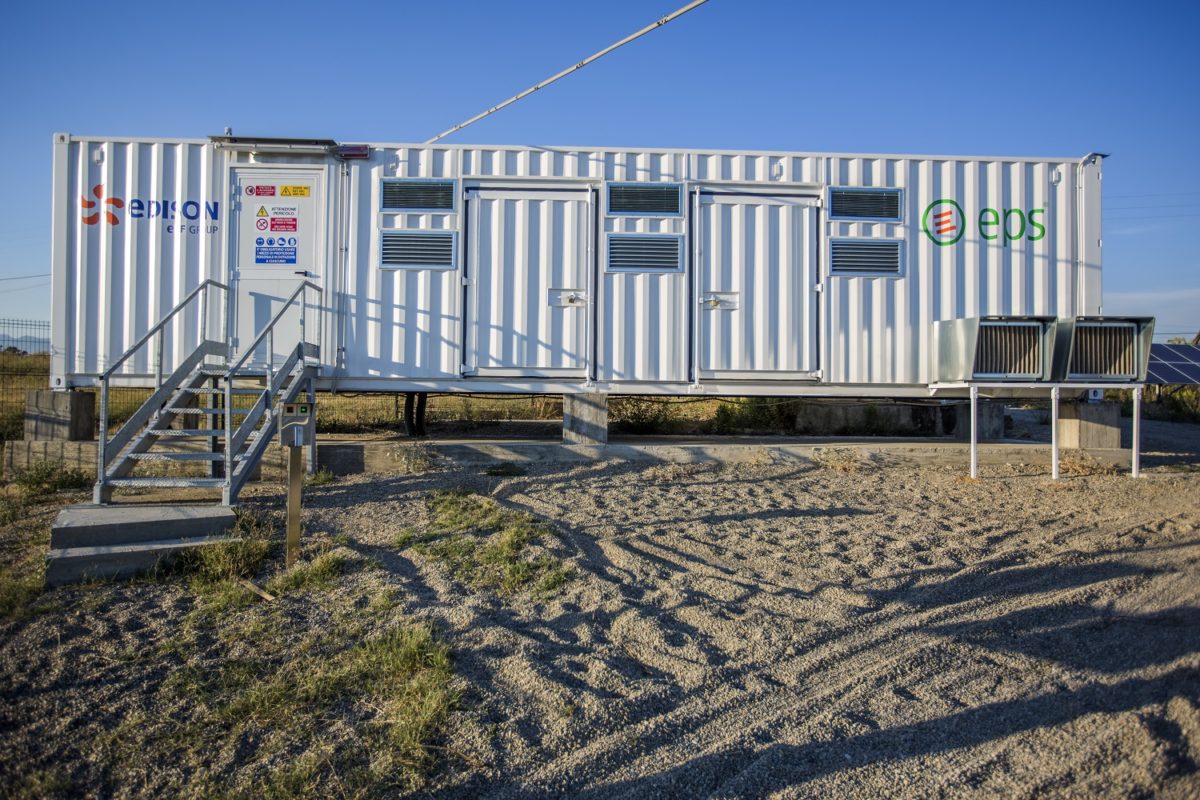Italian energy company Edison has finalized its first large-scale storage project linked to a PV power station, in southern Italy.
The company said a 500 kW/822 kWh storage system of 108 lithium ion battery modules has been deployed at its 3 MW solar plant in Altomonte, in the southern Italian region of Calabria.
The system is the next biggest large-scale storage project operational in Italy, after those developed by grid operator Terna, which launched a program to deploy around 40 MW of storage capacity a few years ago.
The battery was provided by French storage and microgrid specialist Electro Power Systems, a unit of energy company Engie.
“The system is controlled both locally at Altomonte and at the Edison office in Milan, through accumulation or supply controls, or by enabling the system to automatically intervene to reduce imbalances with respect to the photovoltaic system’s operating program,” said Edison in an announcement of the project. “Battery performance is monitored in real time at Edison’s research, development and innovation laboratories, in order to optimize its operating processes.”
Peak management and other services
Popular content
According to Edison, the project will help compensate for the variability of renewables while enabling the testing of such storage systems for other grid services. The company says the storage system can be managed to minimize deviations between expected and real production, through software which considers weather forecasts.
Edison adds, the system has an energy time-shift function enabling modification of the plant’s supply profile to maximize revenue from sales. “In particular, it will be possible to use the battery to accumulate photovoltaic energy produced during hours with low energy value, and then put it on the network at a later time, taking advantage of higher sales prices,” the company stated.
The company says primary and secondary frequency regulation, tertiary regulation and voltage regulation will be provided as grid services.
The Altomonte storage system performs a full charge cycle, from completely discharged to fully charged, in around 90 minutes, Edison added.
This content is protected by copyright and may not be reused. If you want to cooperate with us and would like to reuse some of our content, please contact: editors@pv-magazine.com.



By submitting this form you agree to pv magazine using your data for the purposes of publishing your comment.
Your personal data will only be disclosed or otherwise transmitted to third parties for the purposes of spam filtering or if this is necessary for technical maintenance of the website. Any other transfer to third parties will not take place unless this is justified on the basis of applicable data protection regulations or if pv magazine is legally obliged to do so.
You may revoke this consent at any time with effect for the future, in which case your personal data will be deleted immediately. Otherwise, your data will be deleted if pv magazine has processed your request or the purpose of data storage is fulfilled.
Further information on data privacy can be found in our Data Protection Policy.